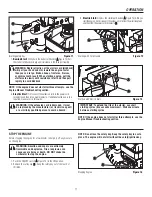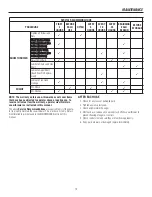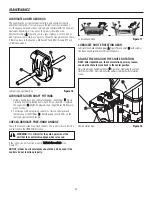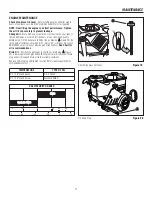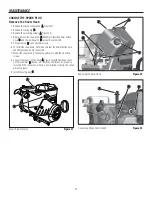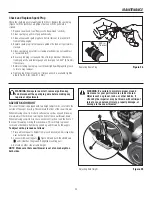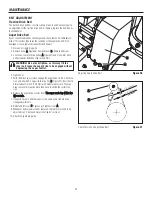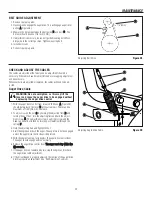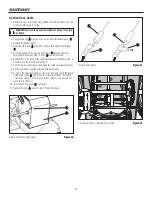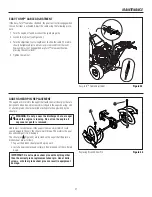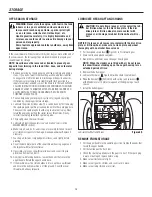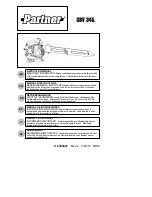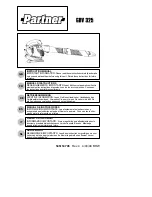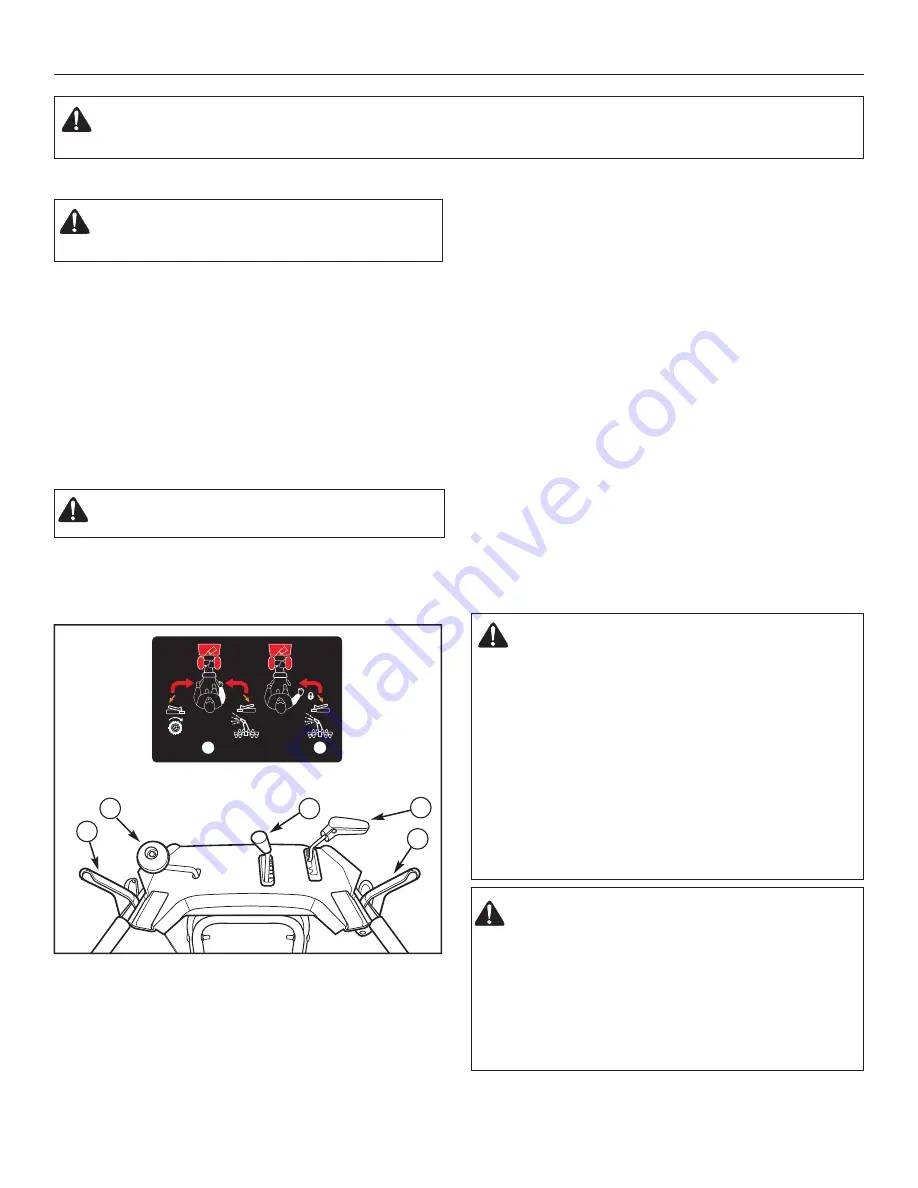
13
OPERATE THE SNOW THROWER
CAUTION: Operation with a Snow Cab. Wind may blow
exhaust gasses back towards the operator. If you notice
the smell of exhaust, change direction of operation.
The most effective use of the snow thrower will be established by experi-
ence, taking into consideration the terrain, wind conditions, and building
location which will determine the direction of the discharge chute.
NOTICE: Do not throw snow toward a building as hidden objects
could be thrown with sufficient force to cause damage.
1. Start the engine. See “To Start Engine” in this section.
2. Rotate the crank (C
C, Figure 5) to set the direction (left or right) of the
discharge chute.
3. Pull the remote chute lever (D
D) back to discharge the snow down.
Push the remote chute lever forward to discharge the snow high and
far.
CAUTION: Before operating, make sure the area in front
of the snow thrower is clear of bystanders or obstacles.
4. Fully press and hold the auger engage control (A
A) on the right-hand
grip to begin auger rotation. Releasing the auger engage control will
disengage the auger - unless the Free-Hand™ Control has been acti-
vated.
WARNING: Read Operator’s Manual before operating
machine. This machine can be dangerous if used
carelessly.
• Never operate the snow thrower without all guards, covers,
shields in place.
• Never direct discharge towards windows or allow
bystanders near machine while engine is running.
• Stop the engine whenever leaving the operating position.
• Disconnect spark plug before unclogging the impeller
housing or the discharge chute and before making repairs
or adjustments.
• When leaving the machine, remove the safety key. To reduce
the risk of fire, keep the machine clean and free from spilled
gas, oil, and debris.
WARNING: Never run engine indoors or in an enclosed,
poor ventilated area. Engine exhaust contains CARBON
MONOXIDE, an ODORLESS and DEADLY GAS.
• Keep hands, feet, hair, and loose clothing away from any
moving parts on engine and snow thrower.
• Temperature of muffler and nearby areas can exceed
150°F (66°C). Avoid these areas.
• DO NOT allow children or young teenagers to operate or
be near snow thrower while it is operating.
7. Use the speed select lever (EE) to select the forward drive speed. Set the
speed select lever to one of the following positions as determined by
snow conditions:
1-2 Wet, Heavy, Slushy, Extra Deep
3
Moderate
4-5 Very Light
6
Transport
NOTE: When clearing wet, heavy, snow, it is recommended
that the ground speed of the unit be reduced, maintained full
throttle and do not attempt to clear the full width of the unit.
8. To stop moving forward, release the traction control lever (B
B).
9. To move the snow thrower backwards, move the speed select lever into
either first or second reverse position and engage the traction control
lever.
STOP THE SNOW THROWER
1. Release the auger engage control (A
A, Figure 5).
2. Release the traction control lever (B
B).
3. Push the ON/OFF switch (A
A, Figure 14) to the OFF position and pull
out the safety key (B
B).
NOTE: Always release the traction control lever before moving
the speed select lever.
Control Levers
Figure 5
1
2
FFree-Hand
TM
Control
5. Fully press and hold the traction and Free-Hand™ Control lever (B
B) on
the left-hand grip to engage the traction drive and begin moving the
snowthrower. To disengage the traction drive, completely release the
lever.
6. When BOTH levers are depressed, the Free-Hand™ Control is acti-
vated. This allows auger engage control to be released - YET AUGER
ROTATION WILL CONTINUE - until the Free-Hand™ Control is re-
leased.
B
E
D
A
C
OPERATION
WARNING: The operation of any snow thrower can result in foreign objects being thrown into the eyes, which can result in
severe eye damage. Always wear safety glasses or eye shields before beginning snow thrower operation. We recommend
standard safety glasses or Wide Vision Safety Mask over spectacles.

















